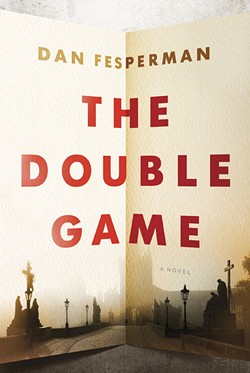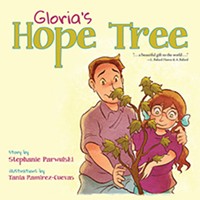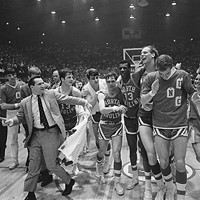Book review: Dan Fesperman's The Double Game
Former Charlotte writer successfully riffs on le Carré
By Erik SpanbergThe Double Game
by Dan Fesperman (Knopf, $26.95, 356 pages)
Dan Fesperman, as his website proudly notes, was educated in the public schools of Charlotte and graduated from the University of North Carolina in Chapel Hill. His former career as a reporter included a stint at the now-defunct Charlotte News.
During his journalism days, Fesperman writes of "contributing heavily to the eventual insolvency" of the Charlotte paper. He went on to become a foreign correspondent for The Baltimore Sun, embarking on a series of reporting odysseys in Europe and the Middle East that inspired a second career as a spy novelist.
Luckily for readers, Fesperman's fiction proves just as charming as his self-deprecation. With his eighth and latest novel, The Double Game, Fesperman delivers a love letter to his own genre. Call it a case of metafiction overload, and a glorious one at that.
Riffing on an old interview with British spy novelist John le Carré that Fesperman had read — a conversation that included a remark to the effect that defecting to the Soviet Union intrigued the spy-turned-novelist — the former Charlotte journalist creates an American spymaster in the mold of le Carré. Fesperman's protagonist, Bill Cage, is a Washington journalist who meets and interviews his own le Carré-like hero, which sets in motion a spy adventure that mirrors characters and scenes from Cold War-era thrillers.
What could have devolved into debacle instead delivers a jolt of inspired storytelling, fused with a love of le Carré, Len Deighton, Graham Greene and Ian Fleming, to list but a handful of Fesperman's name-checked authors. Cage is middle-aged and stuck in a soul-sucking public-relations job when the ghosts of his 20-year-old Washington Post interview with CIA agent-turned-novelist Edwin LeMaster boomerang back into his life.
In an aside, Cage tells the reader that his day job includes congressional testimony defending clients including the makers of the Lattelicious Superluxe milk frother. With such inanities in mind, Cage has lost all respect for himself and his boss, a slippery PR maven named Marty Ealing. Thus when tantalizing messages appear, tapped out on Cage's own typewriter and stationery without his knowledge, he is happy to be manipulated, no matter the cost or danger. Anything beats boredom.
Cage's father, a retired diplomat, knew LeMaster and admired his work. The elder Cage, now living in Vienna, also passed along his love of spy novels to his son while maintaining a mysterious silence about some unusual diplomatic duties abroad. All of which sets up a twisty, in-way-over-his-head series of adventures and misadventures for Bill Cage. Clues and prods, as well as threats, arrive in the form of coded messages that use dialogue and passages from famous spy novels to convey their meaning.
Beyond the authors and their works, Fesperman sprinkles in plenty of real-life spies and prominent Cold War figures. They range from Washington Post editor Ben Bradlee to the infamous British double agent Kim Philby.
Echoes of spies both real and fictional abound in the character of Bill Cage, who narrates the story with his creator's bibliophile passion.
As a Foreign Service brat, Cage spent his childhood roaming the Eastern European capitals known for so much espionage and intrigue. And, as a teenager in Vienna, his first girlfriend was an Austrian named Litzi, an affectionate nod to the biography of Philby himself. (Philby met his first wife, Litzi Friedman, in Vienna in 1933.)
But it is the literature of the Cold War, and its creators, that carry the day here. Is there a missing manuscript providing answers sought to decades-old American and Russian intelligence mysteries? Why, of course. And do the thugs and graying CIA-KGB rivals find themselves stymied, at least on occasion, by a smirking antiquarian book scout? Yes again.
Drops and murders occur in the cathedrals of Fesperman's world: great old bookstores spread across Vienna and Budapest. Bill Cage, as is only fitting, reunites with his teenage love, Litzi, but not in the expected ways. She has a covert past of her own and, naturally, knows how to explore the past lives of others as a national archivist.
Fesperman tells a far different tale from, say, Salman Rushdie, but The Double Game, like many of Rushdie's fantastical works, is, more than anything, a story of storytellers, of the fiction in our lives. Strolling the marble floors of the archives with Litzi, Bill Cage speaks for all of Fesperman's literary heroes when he remarks on the floor-to-ceiling bookshelves: "The smell alone was intoxicating — all those pages, lovingly tended."
So, too, are the pages of The Double Game, a charming novel that infiltrates your reading pile and demands to be reckoned with at once.
Speaking of...
Latest in Books
More by Erik Spanberg
-
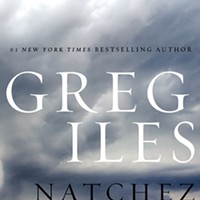
Book review: Natchez Burning
Jul 2, 2014 -
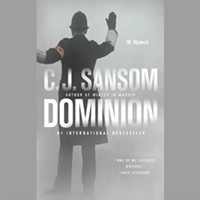
Book review: Dominion
May 16, 2014 -
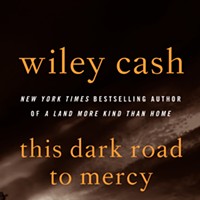
Book review: Wiley Cash's This Dark Road to Mercy
Mar 21, 2014 - More »
Calendar
-

WHISKEY TASTING: VIRGINIA HIGHLANDS WHISKY @ Elizabeth Parlour Room
-

NEW WINDOW GALLERY-Pat Rhea-ACRYLIC PAINTINGS-April 05-30 2024 VALDESE, NC 28690 @ New Window Gallery/Play It Again Records
- Through April 30, 12 p.m.
-
An Evening With Phil Rosenthal Of "Somebody Feed Phil" @ Knight Theater
-
Kountry Wayne: The King Of Hearts Tour @ Ovens Auditorium
-
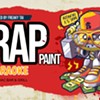
Trap & Paint + Karaoke @ Zodiac Bar & Grill
-
Susan Brenner Examines Upheaval While Celebrating Trees
Chaos and beauty
-
Jessica Moss Makes the Gantt Center a Safe Zone for Local Artists 2
Flipping the script
-
Breaking the Moon musical brings light to dark side 12
A Teenie Galaxy

